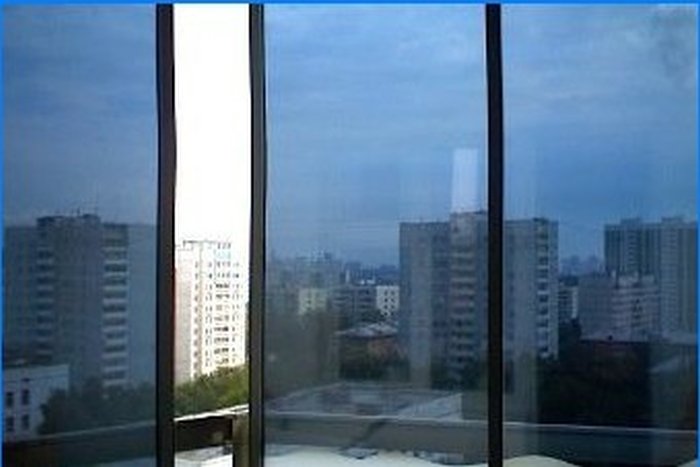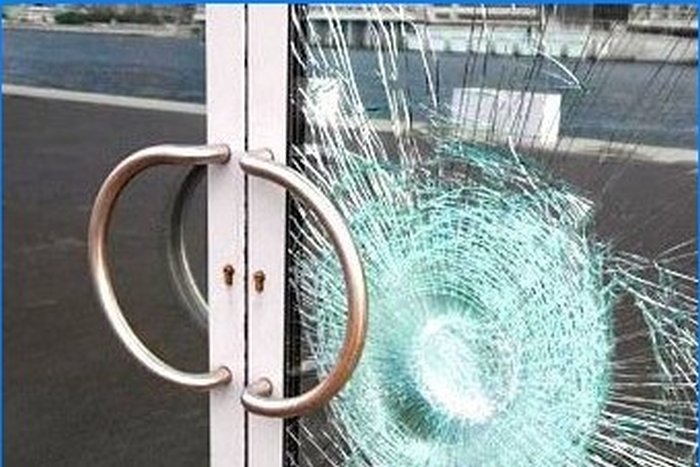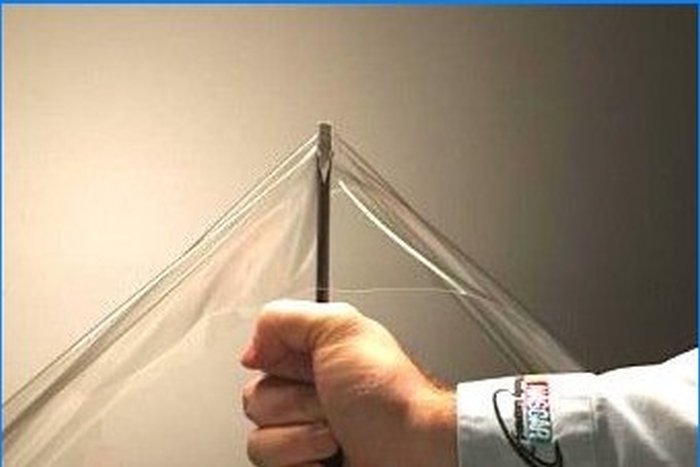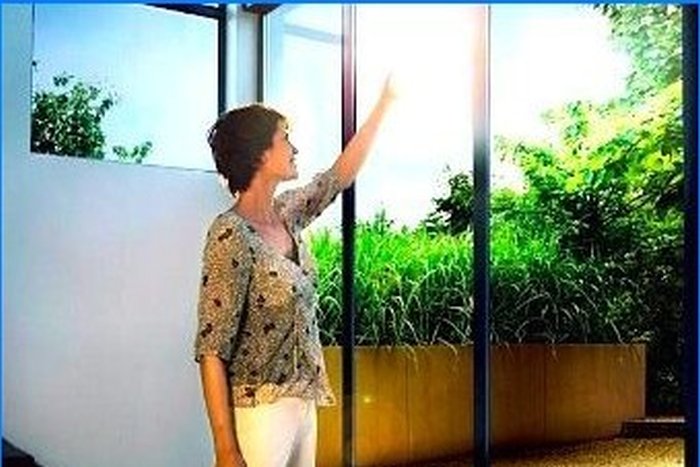Recommendation points
In combination with double-glazed windows, film coatings are often used for PVC windows. Films, in addition to decorative properties, add additional functions to glass. With the help of various films, glass can be made shatterproof, retaining heat, and noise-absorbing. Also protects against excessive sun radiation, is fire resistant, more durable and tinted. One-sided transparency of office or apartment windows can be achieved.

The protective film is a multi-layer system made of polyester and a strong, pressure-sensitive adhesive. The film is glued to the surface of the window glass. The film thickness is different and ranges from 110 to 350 microns.
Glass strengthening
It makes sense to install protective films where you can refuse to use expensive and heavy shatterproof armored glass or other mechanical means of protection. The use of protective films is indispensable in earthquake-prone areas, as well as in places where there is a threat of armed attacks and explosions. A protective film is used when unauthorized access to information or equipment by hacking is possible..

Experiments have shown that when glass protected with a film is struck, a small hole is formed in it, and the glass itself remains intact. Thus, it will take a long time and considerable physical effort for an intruder to enter the premises. Practice shows that damaged glass delays an intruder for about 10-15 minutes.
By strength, protective glazing is divided into three groups:
- “Impact-resistant”, class A – glass withstands the impact of a stone, stick and other objects thrown with force without forming a through hole;
- “Resistant to penetration”, class B – glazing capable of withstanding the impact of an object or metal tool and temporarily preventing the punching of a hole through which a person can penetrate into the interior of the room;
- “Bulletproof protective” – glazing that stops a bullet fired from small arms, not allowing it to break through the glass.
The main property of protective glazing is resistance to force impact without loss of transparency.
Shatterproof
Broken glass fragments can pose a serious danger to vital organs. According to statistics of domestic injuries, the share of fatal and serious injuries caused by fragments of broken glass accounts for a third of all traumatic cases.

The protective film allows you to reduce or completely eliminate the risk of being hit by fragments and even withstands a blast wave. If damaged, the glass either remains in the frame or falls out in a whole piece, without causing injury to people nearby.
Fire resistance
The protective film applied to the glass forms a refractory composition capable of holding back fire for 45 minutes, which, according to the standards, corresponds to the second class of fire resistance. When exposed to an open flame, a weak surface combustion is formed on the protective film without advancing the fire front. When the source of the flame is removed, the combustion stops immediately. Thanks to this, fire causes much less damage, while no toxic gases are emitted..
Heat saving
The use of protective films on glass units can reduce heat loss by 35-40%. In winter, depending on the type of film, heat loss can be reduced by 16-35%, thanks to the reflection back into the room of the heat that would otherwise go outside. The film evens out cold and warm areas inside the room.
Sun protection
Ultraviolet rays of the solar spectrum are the main source and cause of burnout of furniture coverings, carpets, wallpaper and various interior items. The sunscreen film is able to filter out up to 99% of ultraviolet radiation, and the color of the film does not affect its ability to absorb ultraviolet light in any way, it can be absolutely transparent to visible rays.

Data protection
Protective films with metal spraying are capable, in addition to creating the effect of one-way visibility, to prevent information leakage through electromagnetic and vibroacoustic channels. In other words, this type of film allows you to protect the room from specially organized electromagnetic leakage channels (external bugs) and listening in the acoustic range using external directional microphones. Attenuation of the harmful signal reaches about 40 dB, which makes it almost impossible to intercept information.
The possibilities of modern window glazing are almost endless. By choosing the appropriate type of protective film, you can avoid heat loss, reduce the penetration of street noise, protect yourself and your property from intruders and protect your office from information leakage.

What are the benefits of using protective films for PVC plastic windows? Are they easy to install and remove without leaving any residue? How long do these films last before needing to be replaced? Can they protect against dust, scratches, and UV rays? And most importantly, where can I find high-quality protective films for PVC plastic windows?